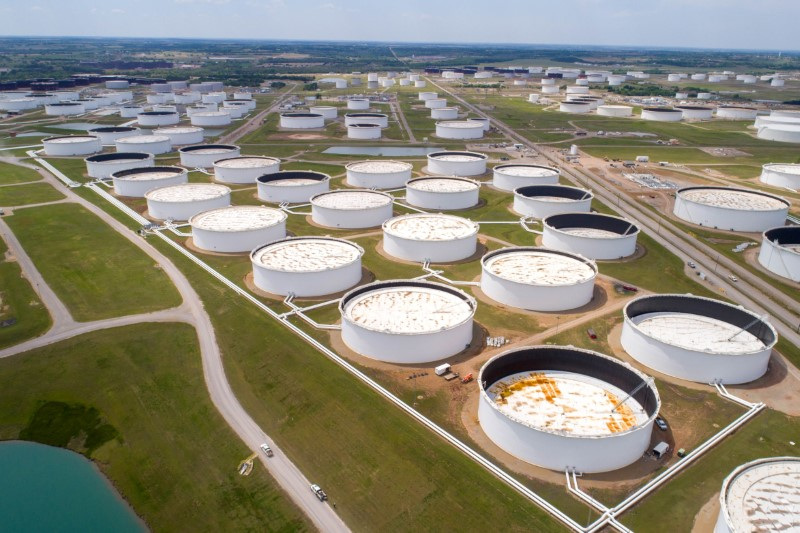By Georgina McCartney
HOUSTON (Reuters) -Oil prices settled higher on Thursday for the third consecutive session, after U.S. jobs data eased demand concerns and war in the Middle East helped prices recover from an eight-month low on Monday.
Brent crude futures settled up 83 cents or 1.06% to $79.16 a barrel. U.S. West Texas Intermediate crude settled up 96 cents, or 1.28%, to $76.19.
Prices were buoyed after data showed the number of Americans filing new applications for unemployment benefits fell more than expected last week, suggesting fears the labour market is unravelling were overblown.
"The latest U.S. data on jobless claims indicates still a growing U.S. economy, reducing some of the oil demand concerns," UBS analyst Giovanni Staunovo said.
Investors were also digesting a 3.7 million barrel drop in U.S. crude inventories last week, reported by the Energy Information Administration on Wednesday, a drop which far exceeded analysts' expectations and marked a sixth straight weekly decline to six-month lows. [EIA/S]
Elsewhere, the killing of senior members of militant groups Hamas and Hezbollah last week had raised the possibility of retaliatory strikes by Iran against Israel, stoking concerns over oil supply from the world's largest producing region.
"It will spike the price of crude oil if there is an Iranian retaliation on a large scale and I think that is what everyone is most worried about,” said Tim Snyder, chief economist at Matador Economics.
Meanwhile, the United Kingdom Maritime Trade Operations (UKMTO) agency said on Thursday it had received a report of an incident 45 nautical miles south of Yemen's Mokha.
Iran-aligned Houthi militants have launched attacks on international shipping near Yemen since last November in solidarity with Palestinians in the war between Israel and Hamas.
Israeli forces stepped up airstrikes across the Gaza Strip on Thursday, killing at least 40 people, Palestinian medics said, in further battle with Hamas-led militants as Israel braced for potential wider war in the region.
Also lending some support, Libya's National Oil Corp. declared force majeure at its Sharara oilfield from Tuesday, a statement said, adding that the company had gradually reduced the field's production because of protests.

Analysts at Citi said there was a possibility of a bounce in prices to the low-to-mid $80s for Brent.
"Upside risks in the market remain, from still-tight balances through August, heightened geopolitical risks across North Africa and the Middle East, the possibility of weather-related disruptions through hurricane season, and light managed money positioning," Citi said.